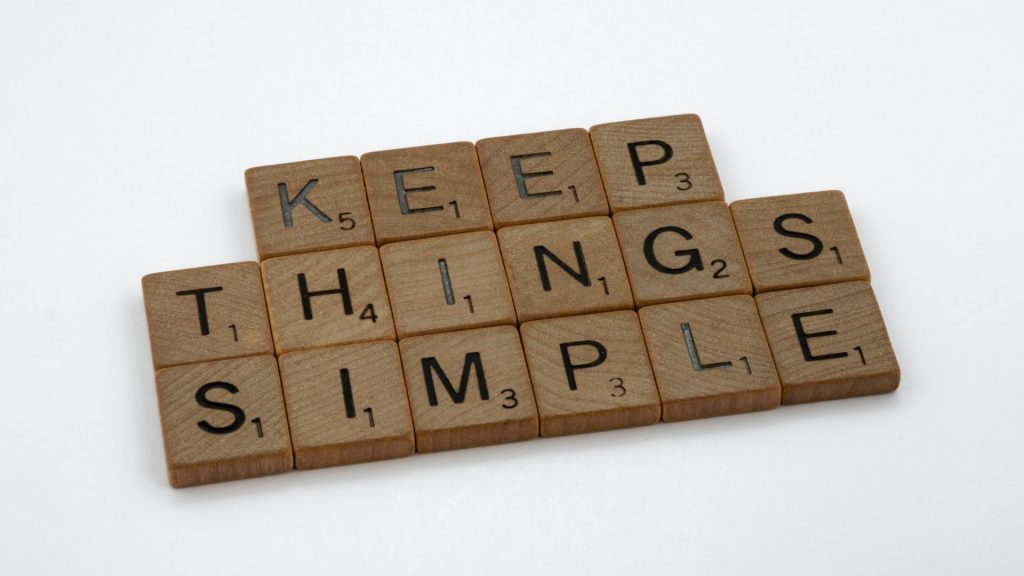One Thing at a time
In an extremely fast-paced world, it is becoming increasingly more difficult to make, implement and stick to goals that better our lives. Those goals could be anything: work, fitness, sleep, family life, etc. Our intentions to conquer all our goals can be great, however, we are less likely to succeed and see our goals to fruition, when we have too many in place. It is essential that we tackle one thing at a time, for optimised focus, productivity and effectiveness. Let's see how and why!
More Goals, More Success…Right?
Wrong. While this thinking seems quite logical, our brains aren’t wired like this. Research has shown that people who specifically write out their goal, when they are going to take steps to achieve them, and where they will do this, are 2-3x more likely to achieve their goal. The specific what, when and where are what we call ‘Implementation Intentions‘. However, further research has shown that these implementation intentions are only successful when focusing on one thing at a time.
Although counterintuitive, researchers have found that people who have multiple goals that they are reaching for are far less likely to reach any of them, compared to someone who only has one goal they are focusing on. The reason that focusing on one thing at a time is essential to the success of the goal, is that brains need repeated behaviours before they can become habits.
The end objective for any habit, new routine or goal is automaticity. Automaticity is the brains capability to do a task without conscious thought, for example, walking or typing. But the catch with automaticity is that it is not an overnight occurrence. It takes repeated behaviours and actions to create an automatic and habitual action. And now we can see why it is essential to take it one thing at a time! Because our brain needs focused and repeated attention on one practice to create an automatic habit. Having too many goals, practices, and intentions, is disrupting the brain’s ability to solely focus on the one main habit!
Sophisticated Simplicity

The word ‘simple’ is often associated with things being bleak, boring, and uninviting, but I am here to change that! Da Vinci said, “Simplicity is the ultimate sophistication”. Seems like an oxymoron at first glance, but he was onto something! In today’s culture, it can seem like the common idea of productivity is having a to-do list as large as the Pacific Ocean, having a finger in several different project pies and a calendar so full you have time for nothing you enjoy. That is not productivity!
Our brains just aren’t wired to have a plate so full! But it can seem counterintuitive! There are so many benefits to focusing on one thing at a time and cultivating simplicity in your life! Cultivating simplicity brings clarity, focus, effectiveness, tranquillity, and a healthy work-life balance! All these benefits of simplicity are irreplaceable and should become a top priority in your life.
Steve Jobs also said “Simple can be harder than complex: You have to work hard to get your thinking clean to make it simple. But it’s worth it in the end because once you get there, you can move mountains.” If you recall, a few weeks ago I wrote about Steve Jobs being a G.O.A.T in business and simplicity was a huge part of that success. So, while the mind works at extremely quick paces, it is important to keep it simple, focus on one thing at a time, to maximise your efficiency.
Elimination with Warren Buffet
Warren Buffett is now 91, however that hasn’t stopped him from being considered the most successful investor in the 20th century. Buffett is an American businessman and philanthropist worth over $100 billion dollars. What is very clear here is that Buffet has had to work hard to be where he is, with the wealth that he has. He didn’t wait for things to come to him, but he also didn’t overcommit to countless things at once.
Mike Flint was Buffett's private pilot for over 10 years. One day Flint was discussing his career goals with Buffett. Buffett asked him to partake in an exercise with him. He asked him in step one to write down his top 25 career goals. Then, step two was to review the 25 goals and circle his top 5 most important goals. Flint said he would work hard to achieve his top 5 goals. Buffett interrupted and asked, “what about the other 20 goals?” to which flint assured Buffett the other 20 were still very important to he would work towards them on the side. Buffett then made the whole exercise clear by saying “Wrong. Everything you did not circle, has become your ‘avoid at all costs' list. These don’t get your time and attention until the other 5 have been achieved.”
Buffet knew from experience just how important it is to keep it simple and focus on one (or minimal) thing at one time! Buffet’s exercise was in elimination. Eliminating what was not necessary for right now and highlighting what is essential for the present focus. This elimination doesn’t mean that those things don’t have value, it just helps you to know what is most important to you right now, and what can be done and worked towards at another time.
Simplifying your future
We know it’s important to have goals, but hopefully, this has helped you see the importance of focusing on one thing at a time. Our brains need clarity, and clarity comes from focus and tranquillity, which is what simplicity provides. Do yourself, your goals, and your future a favour and take it one thing at a time, keep it simple and eliminate what is holding you back!
References
Clear, J. (n.d.). The scientific argument for mastering one thing at a time. James Clear. https://jamesclear.com/master-one-thing
Clear, J. (n.d.) Warren Buffett’s ‘2 list’ strategy: How to maximise your focus and master your priorities. James Clear. https://jamesclear.com/buffett-focus
Macabasco, L. (n.d.). The benefits of simple productivity. Life Hack. https://www.lifehack.org/articles/productivity/the-benefits-of-simple-productivity.html
Mackay, J. (2015). The psychology of simple. Start It Up. https://medium.com/swlh/the-psychology-of-simple-fd5d25a3ca


